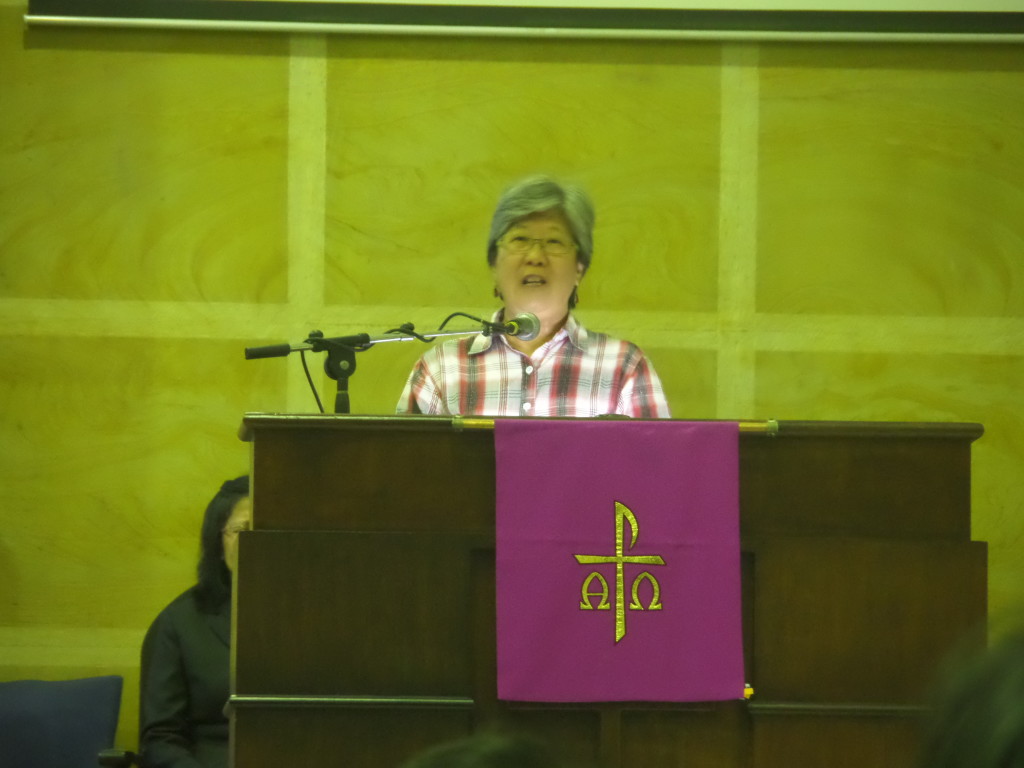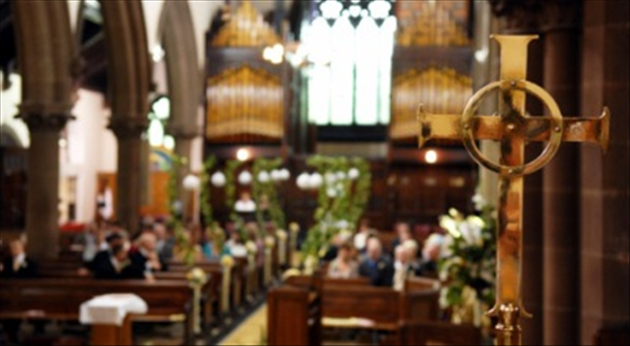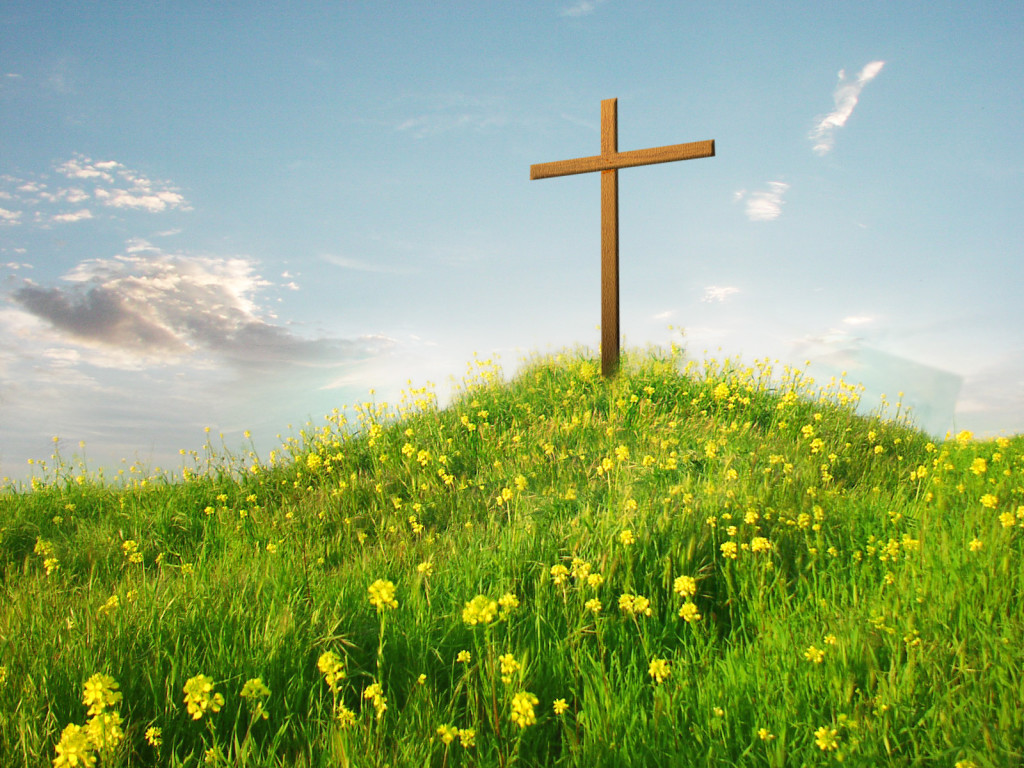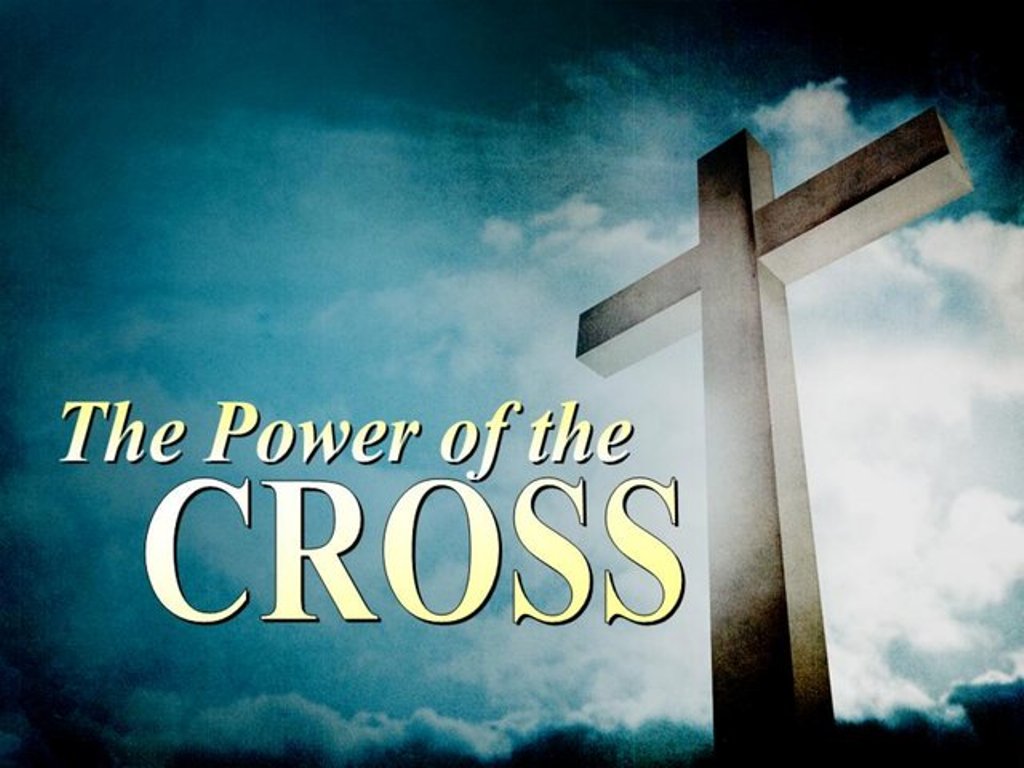
16 April 2014 by Jason Law CM –
About 2000 years ago, a momentous event took place in our history. It was an event of such significance that it split the history of our world into two. But that was only the first step in God’s redemption plan for His people. What culminated from it is the real crux of that event, and the most important area in the lives of Christians, the one that we Christians center our lives around. Last Sunday, 13th of April 2014, sis Veronica Ting of Wesley Methodist Church, KL, gave a sermon about the significance of sacrifices, and the Christian understanding of the topic.

Sis Veronica began by providing the definition of the word ‘Sacrifice’ as understood by most people in the world, including Christians. The fundamental idea of sacrifice is that of substitution. As people of God, we are taught to consistently live a sacrificial lifestyle. Instead of spending on themselves, responsible parents invest in their children’s education. The children’s education becomes a substitution for the parents’ own desires. Friends spend time, as well as fast and pray for the healing of their sick friends. The time spent on their sick friend becomes a substitution for time that they could have spent on themselves.
One of the definitions of the word ‘sacrifice’ found in the Oxford Dictionary is ‘An act of slaughtering an animal or person or surrendering a possession as an offering to a deity’. In the time of the Old Testament, which was that of the Law, offerings were made to God as an act of worship. The blood of animals was shed as atonement so that God would forgive the people of their sins (Leviticus 1:1-13; 17:11; Exodus 24:4-8). This Old Testament sacrificial system was frequently bloody, and it was necessary for the blood that was shed to come from a clean animal.
The Israelites knew the seriousness of sin. The bloodiness of the sacrificial system expressed the depth of the Israelites’ desire for forgiveness and played a role as a prayer for restoration. Even in those days, there was recognition that because of sin, the relationship with God had been broken. The blood represented life and the atonement represented the people’s desire to be one with God. This atonement represented the whole people and the blood was not just sprinkled on one or two but on all the people (Exodus 24:8). The blood of the sacrifice represented one life being poured as substitution so that restoration could be made, and a relationship set right with God.
Sis Veronica pointed out that while the old sacrificial system was valuable to the Israelites, it had no meaning or impact if there were no sincerity, or if the people’s hearts were not set right with God. Throughout the Old Testament, the Israelites had failed many times in this aspect. In the Books of Malachi, Isaiah (1:13), and Amos (5:21-27), the Bible records that God lost patience with His people. Despite the sacrificial system, the people had kept sinning and their sins were still not set right with God. There was hypocrisy and oppression against the defenseless.
God desires sincerity in our relationship with Him. Our sacrifices of worship (prayer, thanksgiving, tithing, etc..) must be sincere and not just a ritual. The ceremonies we perform in our churches gives us stability and continuity. It helps us to prepare, and we know what to expect every week; we come together for fellowship with others, we pray to God, we sing songs of thanksgiving to Him, we proclaim the Word of God, we invite God to illuminate his Word to us, and we respond to the need to make a decision and take action. Many then go out into the world and live true Christian lives. But these observances must not be detached from our hearts and their meaning; their true value rest on a relationship with God and not in themselves.
As recorded in the New Testament, God decided that the sacrificial system by people was never going to work. Through a Compassion and Grace of immense magnitude, God took the step and Jesus became the final sacrifice as the Lamb of God. This was the only way for the atonement of our sins, and the incalculable price for our salvation. It culminated in the Final Victory over death at Easter. As Christians, what then should be our response?
Generally, according to a person’s understanding of the concept of sacrifice, their response can be either positive or negative. In Genesis 13:5-9, Abraham made the sacrifice of giving up the better land to Lot in order to keep the peace. In the Book of Ruth, Ruth left her homeland to care for Naomi. Abraham and Ruth knew the truly important priorities in their life. In our lives, priorities are important.
In Matthew 19:21, Jesus told a rich man that in order to be a perfect disciple of Christ, he had to sell all his possessions, give all the proceeds to the poor, and only then will he have treasure in Heaven and get to follow Jesus. This was the toughest thing for a man in his position, and he gave up. Lest we judge him, we should ask ourselves the question, would we be able to give up our most precious belongings, including our relationships with our loved ones, for His sake? It is doubtless a difficult command, but we should ask ourselves: ‘In recognition of the immense one He made for us, what is our sacrifice for Jesus’?
Examples in the Bible also show the consequences of a dangerous type of sacrifice rising from selfishness and carnality. In the first three chapters of 1 Samuel, the Bible tells us of Eli and his sons. Eli’s sons served as temple priests, and it was their responsibility to make the offerings to God. However, in 1 Samuel 2:12-17, we find that their wickedness was such that they committed the grievous sin of treating the Lord’s offerings with contempt. In 1 Samuel 3:13, Eli and his sons were judged, the Ark was taken in battle by enemies, his sons were killed, and Eli fell and broke his neck upon hearing the news. Eli sacrificed his family life for his occupation. Even King David was not exempt from such temptations. In 2 Samuel 11, David sacrificed his loyal soldier Uriah for a beautiful woman.

Sis Veronica ended her sermon with 3 questions to ponder on during this Holy Week:
1. The sacrificial system of the Old Testament was a constant reminder of the seriousness of sin. How seriously do we take our sins and what are we doing about it?
2. What do the rituals of our spiritual life (worship, celebration, family life, etc..) mean to us? True sacrifice requires sincerity in our response to God. Rituals serve a purpose but we need to rethink them if the life has sapped out of them.
3. Jesus made the ultimate sacrifice for our souls, Good Friday being a reminder of this. Are we entrusting our souls to the ultimate sacrifice on Calvary and its culmination on Easter? Are we entrusting our lives to our Savior or to our rituals?
References for pictures
http://sonomachristianhome.com/wp-content/uploads/2012/04/Crown-of-Thorns-and-Nails.jpg
http://www.wilgafney.com/wpress/wp-content/uploads/2012/12/untitled_0.jpg
http://media.salemwebnetwork.com/cms/CCOM/4217-congregation_edited.630w.tn.jpg
http://www.fabuloussavers.com/new_wallpaper/Cross_On_Hill_freecomputerdesktopwallpaper_1600.jpg
http://3.bp.blogspot.com/-pdgFse87heM/UqLctmDcFpI/AAAAAAAAHLs/fSa7lI6U-wM/s1600/walking+with+God.jpg









Leave a Reply